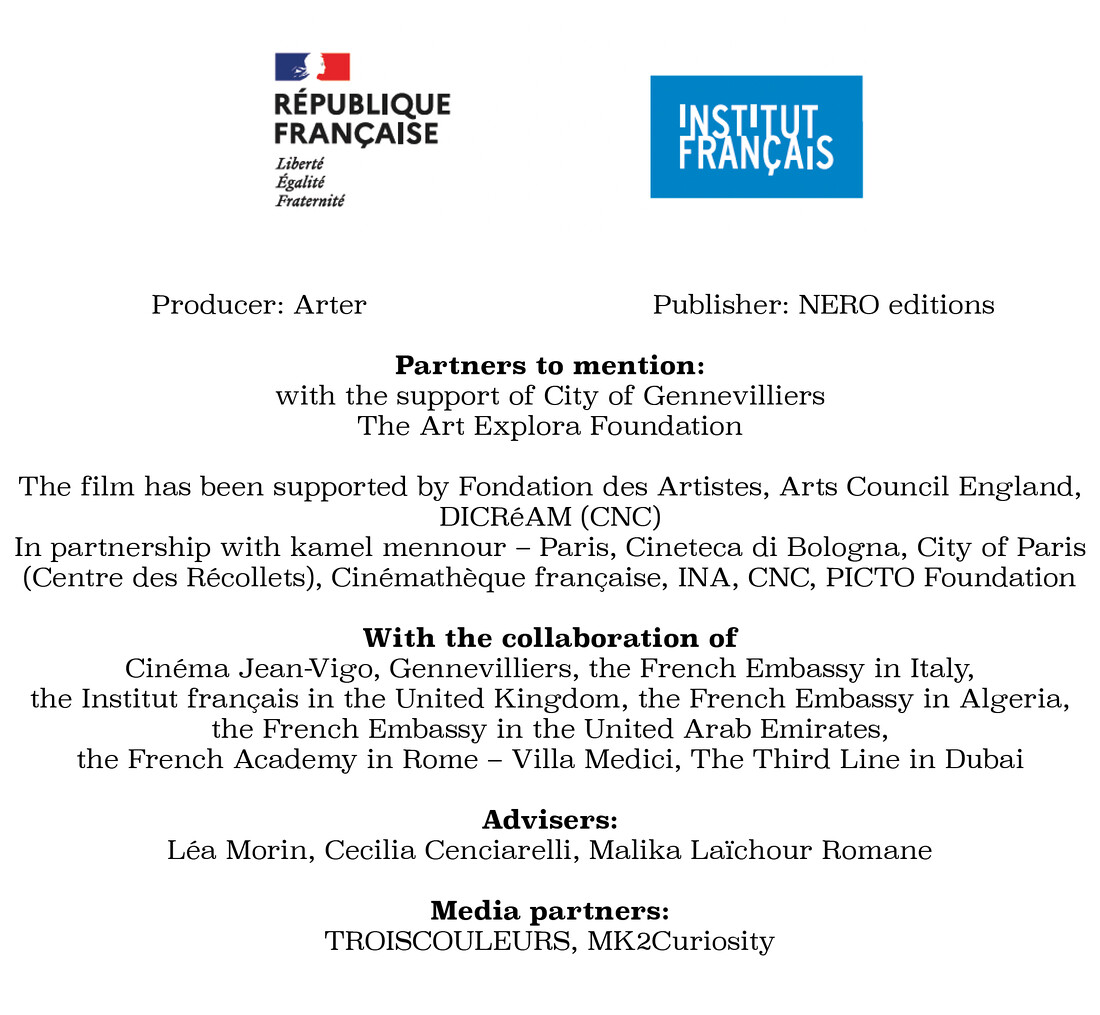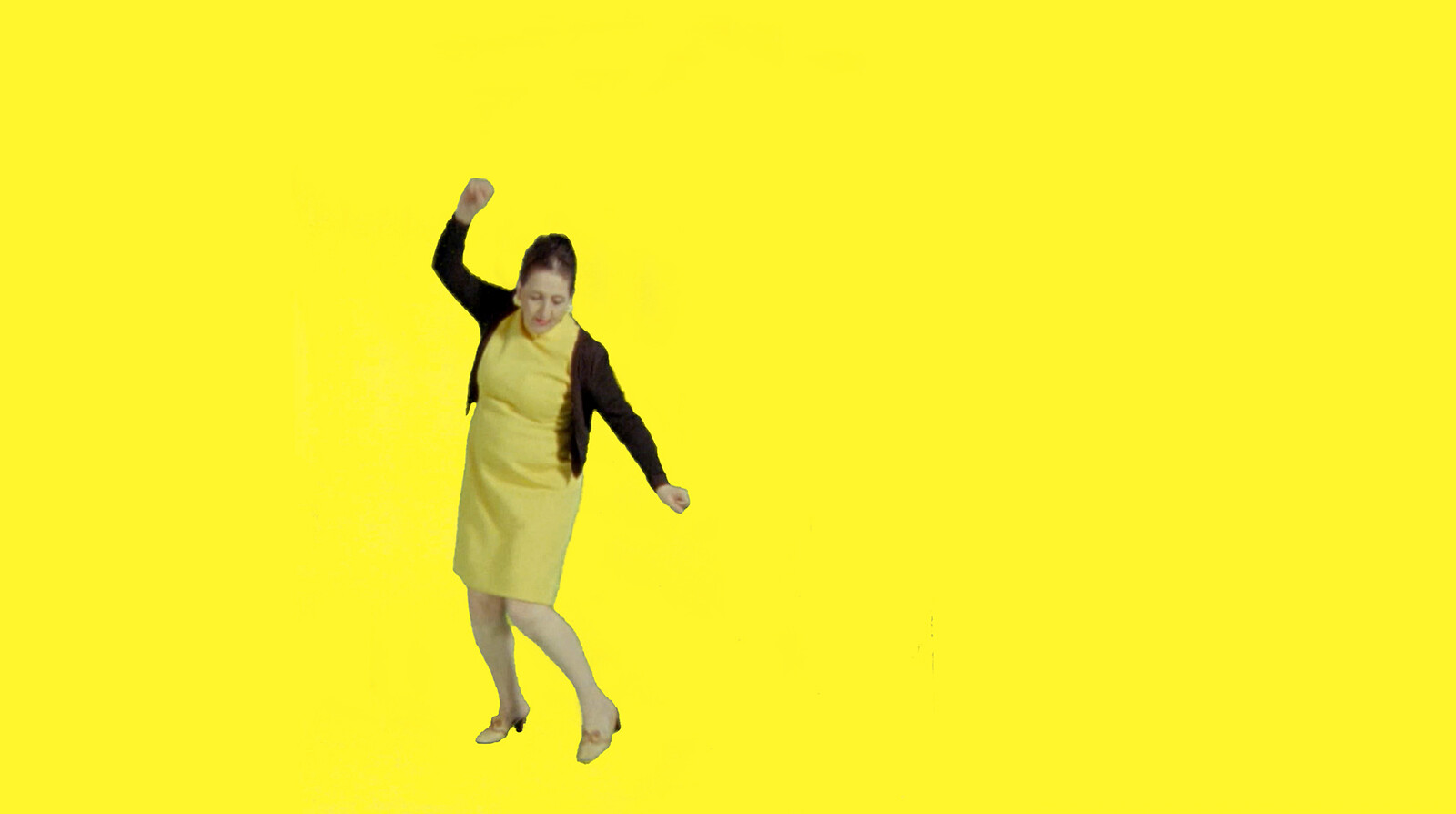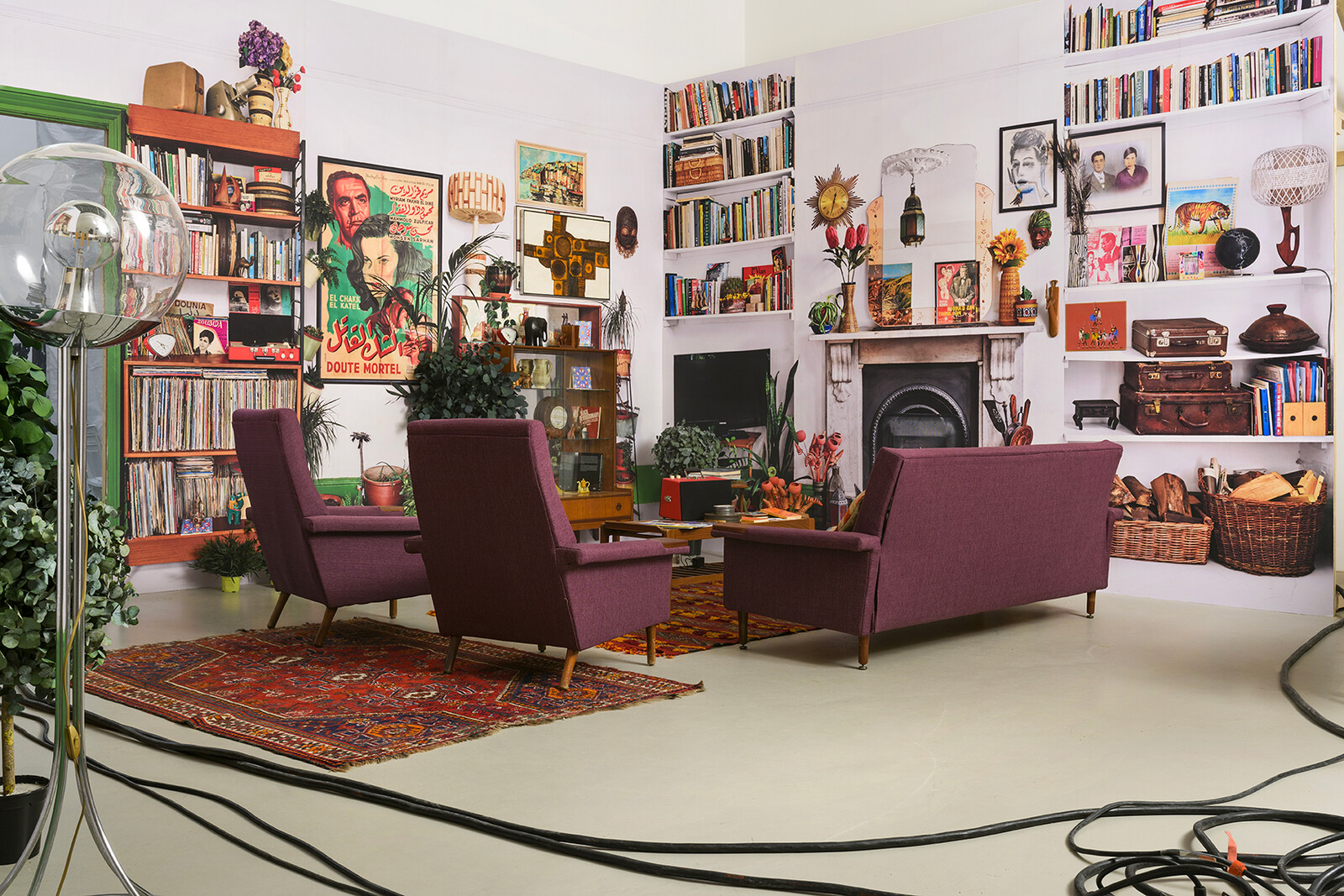Dreams Have No Titles
April 23–November 27, 2022
Giardini
30100 Venice
Italy
Hours: Tuesday–Sunday 10am–6pm
info@institutfrancais.com
Artist: Zineb Sedira
Curators: Yasmina Reggad, Sam Bardaouil and Till Fellrath
Commissioner: The Institut français
The French Pavilion presents Zineb Sedira’s multidisciplinary exhibition, an immersive installation consisting of film, sculpture, photography, sound and collage. In line with her practice to date, Sedira uses autobiographical narrative, fiction and documentary to shed light on past and present international solidarities related to historical liberation struggles. Her contribution serves as a cautionary tale about the failure of an emancipatory promise which, for many people, remains an unfulfilled, not to say an impossible dream.
In Dreams Have No Titles, the artist addresses a major turning point in the history of cultural, intellectual and avant-garde production of the 1960s, 1970s and beyond, in France, Italy and Algeria especially. She focuses on a repertoire of remarkable cinematographic co-productions and filmmaking, in particular activist ones, which had an impact on postcolonial movements.
During several visits to the archives of the Algerian Cinémathèque, she continued to mine the country’s incredible film heritage, which hardly ever gets a mention in the history of the cinematographic avant-gardes. Post-independence cinema in France, Italy and Algeria adhered to the so-called “Third-World” values and aesthetics, which amounted to a true revolution on the big screen. Throughout her life, Zineb Sedira felt close to this militant and anti-colonial movement inspired by the Cuban model, showing a political courage that she considers to be an important manifestation of solidarity at that time, and which she hopes to reactivate today.
In the course of her tremendous research at various international cinema archives, Sedira came across the 1964-65 documentary Les Mains libres (otherwise known as Tronc de figuier) by the Italian director Ennio Lorenzini at the AAMOD (The Audiovisual Archive of the Democratic and Labour Movement). The first known film to be produced in the then newly independent Algeria, it had since disappeared from the screen and from memory.
Moreover, in Dreams Have No Titles, her film for the French Pavilion, she inserts mise en abyme–like re-enactments and “makings of” film scenes, in which she constructs real movie sets and keeps track of the days when these sequences were shot.
Zineb Sedira recalls: “I also relate the notion of remake to that of the mise en abyme, which often crops up in my work. I myself am an artist-director making a film about films. My personal history is the starting point for a mise en abyme of the history of cinema by means of different strategies designed to create a fiction-reality.” Sedira’s theme of appropriation is questioned from the very opening scene of her film, referring to Orson Welles’ F for Fake and the director’s claim that “This film is about trickery”. With this in mind, Zineb Sedira also foregrounds the story of her own life, that of her family and of her community, ranging from the critique of colonial legacies to the ongoing debate about displacement and integration, vulnerability and resilience, as well as our ability to dream. Sedira sees herself as a kind of accidental actor, a famous filmmaker, a fake faker in search of real truth, challenging questions of authorship and authenticity. Two questions keep cropping up: who is writing history and for whom?
The artist uses music, film, literature, and other creative means to tackle the question of freedom, the struggle for liberation and other forms of resistance, and to fight against discrimination, colonisation and racism. By highlighting existing North-South solidarity networks, Sedira goes resolutely beyond the bipolar East-West division of the Cold War period, drawing on her personal experiences with her family and her intellectual artistic community.
Mirroring a “Ball”, Zineb Sedira’s exhibition invites viewers to dance - to dance so as to resist, to be reborn, and to dream… And her dreams have no titles.
Publication: Three newspaper issues, titled respectively Algiers, Paris, Venice
A cross between a newspaper and a magazine, the exhibition is accompanied by a generically hybrid publication that is conceived as an alternative to the catalogue in the traditional sense, and which pays tribute to such innovative Maghrebi publications of the 1970s as Les 2 écrans or Souffles. Each issue refers to a city—Algiers, Paris, and Venice—that has played an important part in Sedira’s life and artistic formation. Sub-titled “Forms of Desire,” “Tools of Agitation,” and “Conserve, Show, Restage, Revivify” respectively, the three issues function as a space of encounter that brings together members of Sedira’s extended artistic and intellectual family. In featuring a plurality of voices, the journal echoes the networks of solidarity forged by artists, filmmakers, and cultural practitioners in the 1960s and 1970s–a period of prolific co-production between Algeria, Italy, and France–in an effort to create an independent political standpoint beyond and outside of past colonial structures. Replete with artistic, cinematic, musical, archival, and political references, the three issues shed light on Zineb Sedira’s artistic practice, the processes that underpin her work, and the inspirations that have nourished it.
The first issue, Algiers: Forms of Desire is already available (published by NERO).
Further information is to be found in the press kit.
The website dreamshavenotitles.com will go online on April 19.
Press requests
International and France: Agnès Renoult Communication, contact frenchpavilion [at] agnesrenoult.com to register for the press visits.













